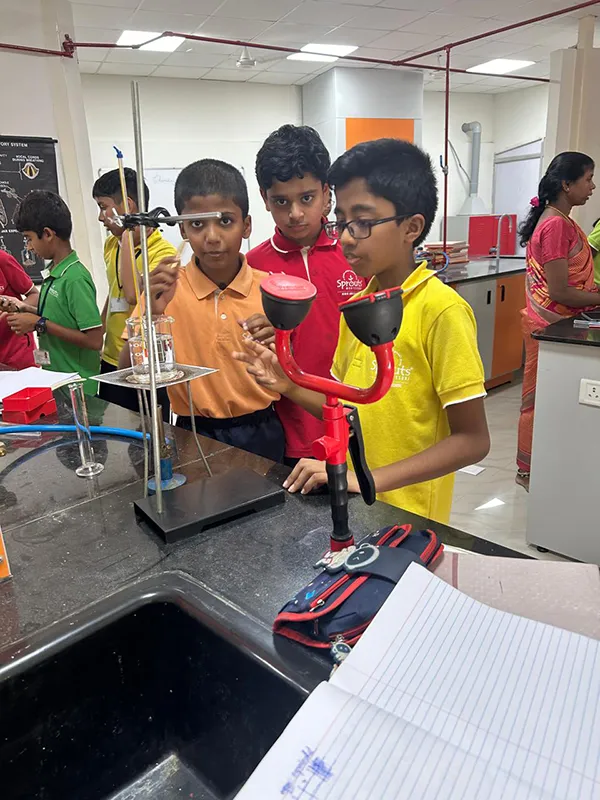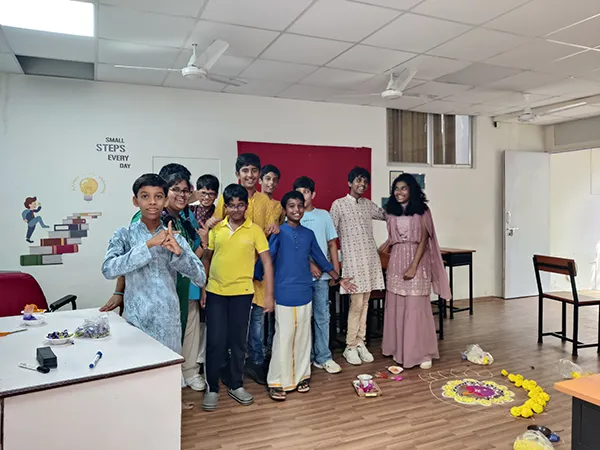
Students come to the Lower Secondary classes with a high level of independence and self-direction. They collaborate to work productively, a practice that paves way for the development of higher order thinking, oral communication, group-management and leadership skills. The environment is rich in its intellectual set up, providing a platform for real-life experiences, across varied areas of study.
Alive with interactive sessions and reflective practices, continuous assessments support the learning process of each child. The adults are experts from the respective fields of study, guiding them to identify their true potentials.


Like a moth metamorphosizing into a butterfly, Early Adolescence is a stage when a child gradually transitions into a young adult. There is a quest for individuality, identity and valorisation in every child.
AN EARLY ADOLESCENT CHILD…



The Lower Secondary students have moved into complete abstraction of concepts. Here they work and learn with more Inquiry based learning techniques of reading, discussing, and applying concepts.
The subjects are explored, both in vertical and horizontal patterns. Concepts are not introduced in isolation, but are integrated with other disciplines. New knowledge is scaffolded with richer experiences and real-life application format.
Our curriculum is integrated across boards and we follow the IGCSE syllabus across most of our subjects.
In addition to the core curriculum, Lower Secondary students also participate in co-curricular activities that lends to their holistic development as an individual and aid to grooming them into confident and independent young individuals.
Working Schedule for the Lower Secondary Program
8:00 am - 8:10 am
8:15 am – 8:30 am
8:30 am - 10:30 am
10:30 am - 10:45 am
10:45 am - 12:30 am
12:30 am – 1:00 am
1:00 am – 1:30 am
1:30 pm – 3:00 pm